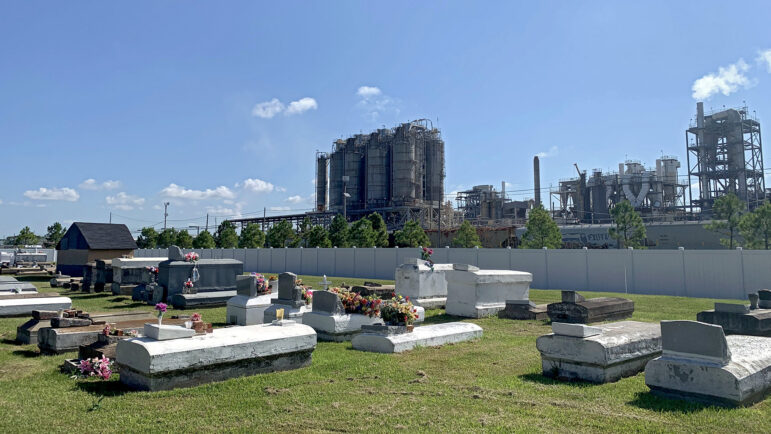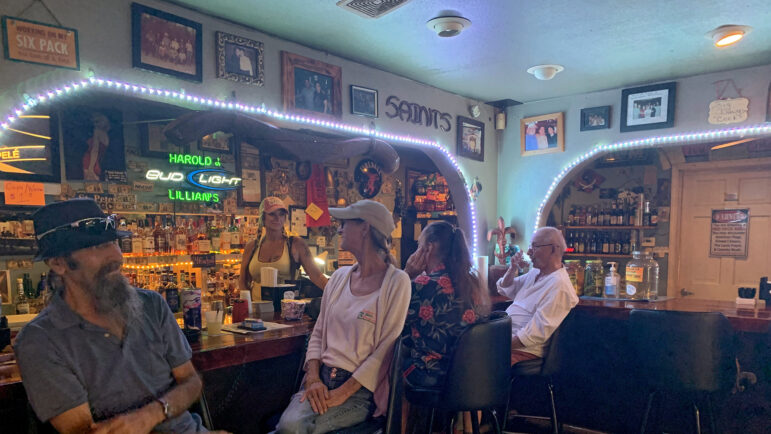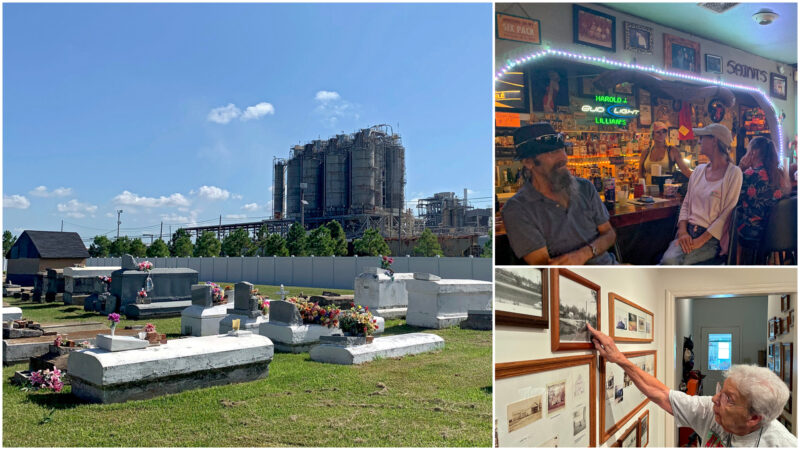Place, Erased: A look at Gulf South communities transformed by forces beyond their control
The “Place, Erased” series focuses on three towns and communities devastated by natural or man-made environmental shifts in the Gulf South: Revilletown, Louisiana, Clermont Harbor, Mississippi, and Easonville, Alabama.
Drive throughout the South and you’ll encounter towns that have been erased. Places that were once full of culture and community are devastated, and in some cases wiped off the map entirely, after major environmental shifts — some natural, some man-made.
In a three-part series, Gulf States Newsroom reporters Danny McArthur and Drew Hawkins traveled across Alabama, Louisiana and Mississippi to examine the journeys of these towns.
Easonville, Alabama: Lessons from a drowned town

Easonville, Alabama was a rural, but thriving, town until an Alabama Power project drowned it to create the Logan Martin Dam.
Sixty years later, residents living near an Alabama mountain faced the same threat. In both cases, the project was touted as a potential green energy source.
Danny McArthur speaks to residents from both communities to determine the overlooked cost of progress in these man-made environmental shifts.
Read More: Place, Erased: How a drowned Alabama town still holds lessons 60 years later
Revilletown, Louisiana: Toxic neighbors

When industry brings toxic pollution to town, Black residents are often in the cross hairs for relocation.
The residents of Revilletown in Southeast Louisiana found themselves in this situation after a chemical company moved in next door to take advantage of the area’s resources. For decades, Revilletown was a close-knit community with about 100 or so residents. But by 1987, enough toxic pollution forced the residents to relocate.
But Revilletown’s story did not end there. Drew Hawkins details the yearslong legal battle over who owns the town’s cemetery.
Read More: Place, Erased: The fight for the remains of a Louisiana town
Clermont Harbor, Mississippi: Ghost town or not?

When is a ghost town actually a ghost town?
That question lingers over Clermont Harbor, Mississippi, an unincorporated town along the Mississippi Gulf Coast that technically doesn’t exist anymore —the town has been wiped off most maps in the years following Hurricane Katrina.
But, Danny McArthur talks to the residents who have kept the community alive in the face of climate change.
Read More: Place, Erased: Is this Mississippi community really a ghost town? It depends on who you ask
This story was produced by the Gulf States Newsroom, a collaboration between Mississippi Public Broadcasting, WBHM in Alabama, WWNO and WRKF in Louisiana and NPR.
Supreme Court appears split in tax foreclosure case
At issue is whether a county can seize homeowners' residence for unpaid property taxes and sell the house at auction for less than the homeowners would get if they put their home on the market themselves.
Top House Dem wants Justice Department to explain missing Trump-related Epstein files
After NPR reporting revealed dozens of pages of Epstein files related to President Trump appear to be missing from the public record, a top House Democrat wants to know why.
ICE won’t be at polling places this year, a Trump DHS official promises
In a call with top state voting officials, a Department of Homeland Security official stated unequivocally that immigration agents would not be patrolling polling places during this year's midterms.
Cubans from US killed after speedboat opens fire on island’s troops, Havana says
Cuba says the 10 passengers on a boat that opened fire on its soldiers were armed Cubans living in the U.S. who were trying to infiltrate the island and unleash terrorism. Secretary of State Marco Rubio says the U.S. is gathering its own information.
Surgeon general nominee Means questioned about vaccines, birth control and financial conflicts
During a confirmation hearing, senators asked Dr. Casey Means about her current positions and her past statements on a range of public health issues.
Rock & Roll Hall of Fame 2026 shortlist includes Lauryn Hill, Shakira and Wu-Tang Clan
The shortlist also includes a 1990s pop diva, heavy metal pioneers and a legendary R&B singer and producer.







